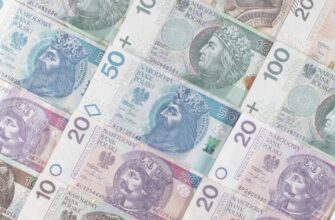- Understanding Bitcoin Taxation in Canada
- When You Must Report Bitcoin Gains
- Calculating Your Bitcoin Gains and Losses
- Reporting Bitcoin Gains on Your Tax Return
- Essential Record-Keeping Practices
- Penalties for Non-Compliance
- Frequently Asked Questions (FAQs)
- Do I pay tax if I transfer Bitcoin between my wallets?
- How is crypto mining taxed in Canada?
- Can I deduct Bitcoin losses?
- What if I bought Bitcoin years ago and lost records?
- Does the CRA know about my crypto holdings?
Understanding Bitcoin Taxation in Canada
In Canada, the Canada Revenue Agency (CRA) classifies Bitcoin and other cryptocurrencies as property rather than currency. This means any profit from buying, selling, or trading crypto is treated as either capital gains or business income, both of which must be reported on your tax return. Failure to disclose these gains can result in penalties, interest charges, or audits.
When You Must Report Bitcoin Gains
You trigger taxable events whenever you:
- Sell Bitcoin for fiat currency (e.g., CAD)
- Trade one cryptocurrency for another (e.g., BTC to ETH)
- Use Bitcoin to purchase goods or services
- Gift crypto (except to a spouse)
- Earn crypto through mining, staking, or airdrops
Note: Simply holding Bitcoin or transferring between your own wallets isn’t taxable.
Calculating Your Bitcoin Gains and Losses
To determine your capital gain or loss:
- Calculate Adjusted Cost Base (ACB): Include purchase price + transaction fees + acquisition costs. For multiple purchases, use the weighted average method per unit.
- Determine Proceeds: Amount received when disposing of Bitcoin (after transaction fees).
- Subtract ACB from Proceeds: If positive, it’s a capital gain; if negative, it’s a capital loss.
Example: Buy 1 BTC for $50,000 (with $100 fee). ACB = $50,100. Sell later for $70,000 ($150 fee). Proceeds = $69,850. Gain = $69,850 – $50,100 = $19,750. Only 50% of gains are taxable ($9,875).
Reporting Bitcoin Gains on Your Tax Return
Follow these steps:
- Step 1: Complete Schedule 3 (Capital Gains) to report net gains/losses.
- Step 2: Transfer the taxable amount (50% of net gains) to Line 12700 of your T1 income tax return.
- Step 3: If crypto was earned as business income (e.g., frequent trading), report gross proceeds on Form T2125.
- Step 4: File electronically via NETFILE or mail your return by April 30.
Essential Record-Keeping Practices
Maintain detailed records for at least six years:
- Dates and values (in CAD) of all transactions
- Wallet addresses and exchange statements
- Receipts for purchases and sales
- Records of mining/staking rewards
- Calculations of ACB and capital gains
Use crypto tax software (e.g., Koinly, CoinTracker) to automate tracking.
Penalties for Non-Compliance
Failing to report crypto gains may lead to:
- Late-filing penalties: 5% of owed tax + 1% per month
- Gross negligence fines: 50% of underpaid tax
- Interest charges on overdue amounts
- Criminal prosecution in severe cases
The CRA actively tracks crypto transactions through crypto exchanges and blockchain analysis.
Frequently Asked Questions (FAQs)
Do I pay tax if I transfer Bitcoin between my wallets?
No – transfers between wallets you own aren’t taxable events. Only report when you dispose of crypto.
How is crypto mining taxed in Canada?
Mining rewards are treated as business income at their fair market value when received. Subsequent sales may also trigger capital gains tax.
Can I deduct Bitcoin losses?
Yes! Capital losses offset capital gains. Unused losses can be carried back 3 years or forward indefinitely.
What if I bought Bitcoin years ago and lost records?
Reconstruct records using exchange histories, bank statements, or blockchain explorers. Consult a tax professional if gaps remain.
Does the CRA know about my crypto holdings?
Likely yes. Since 2021, Canadian exchanges must report client transactions to the CRA under Section 233.3 of the Income Tax Act.








